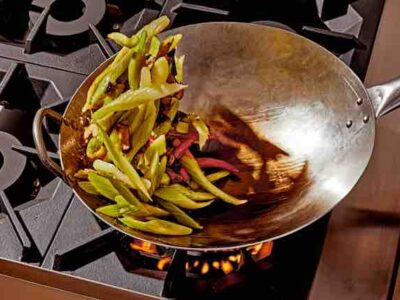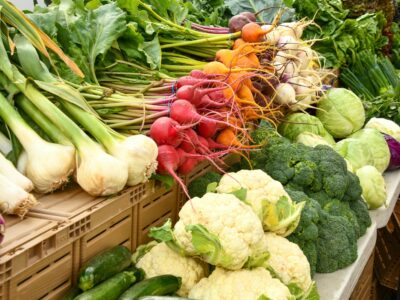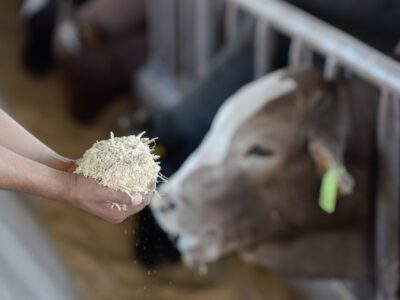Austin, TX, Free Lunch ATX serves meals to the community while advocating for food security through a quarterly publication. Founded by a collection of Austin creatives during the pandemic, Free Lunch ATX serves the people experiencing homelessness throughout the Lone Star capital city and offers a monthly meal calendar distributed in the community, including a wide variety of options community members can choose from. Money from magazine subscriptions funds the nonprofit’s work.
Jazz Mills, founder and director of operations, explained the genesis of the idea to Garden & Health.
“It started right after the pandemic began,” Mills said. “I’m a musician and event planner and didn’t have a job anymore. It was a combination of a lot of things. I’ve always been somebody who wanted to help, and as I got older, I got more and more frustrated that we haven’t figured out [how to feed everybody] yet.”
“By not having a job, I realized I wanted to do something I care about and need to feel connected to people,” she continued.
“So, I started making food and passing it out — and realized a friend of mine, Carrie Fussell Bickley, was doing it, too, and it snowballed into me realizing if we were going to do this consistently, we needed funding. The need for funding led to the magazine.”
Photo Courtesy Free Lunch ATX
The pair made it their mission to provide balanced meals to people living in Camp Esperanza, a homeless camp in the southeast part of the city. Together, they began posting regular updates on social media, which fueled the content for creating a “zine.” The quarterly publications are subscription-based, and that $10 per month cost is turned right back around into supplies and food for the meals.
The zine is truly a community effort. Photographer Jade Skye Hammer and organizations like The Other Ones Foundation, Our Shared Kitchen, Walking By Faith Prison
Ministry, and ATX Free Fridge all help with its production. Subscribers are nicknamed “Lunch Monitors.”
“Coming from a creative background I had a lot of experience on how to get people to pay attention to when I had a show,” Mills said. “To do that, you had to be an active part of your community and have something to catch their eye. I immediately applied that concept to Free Lunch: we needed a new way to show people an old thing.”
“We realized that people who contributed would want some proof of what we are doing,” she continued. “So, we decided to publish a zine with recipes and features on people, [with] updates on what we are doing. People responded really well to the fact that they could receive something so tangible for us, like an extra layer of romance.”
Photo Courtesy Free Lunch ATX
“In order to provide consistent services, we need consistent funding, and that’s hard in this industry. I didn’t want to constantly fundraise or get grants; I wanted to focus on people on the streets,” Mills said. “The magazine platform convinces people to come in at a small cost. That clearly gives us our budget so we don’t overpromise.”
The community is encouraged to subscribe to the magazine or to help with weekly meal contributions to the ATX Free Fridge, where anyone can drop off prepared meals, dried goods, and groceries.
For Mills, Free Lunch ATX is all about individuals making a difference.
Photo Courtesy f_r_e_e_lunch
“[As] a normal person, I can be impactful,” she said. “On paper, none of us are qualified; I don’t have a degree, I’m not a chef. We’re a group of friends who provide food seven days a week. It’s my full-time job. It’s showing how an average person can be impactful this way, and you can be, too.”
When asked about the future, Mills says the nonprofit will be steadfast in its commitment to feeding its community.
“Our goal is never going to change until food insecurity isn’t a thing. We have no programming other than feeding people. What I would like to focus more on food insecurity in children; it’s a whole other level of tragedy,” she said. “I would like to find other orgs or shelters to partner with to provide better food access to children. But our goal of reducing food insecurity is never going to change until that’s not a problem anymore.”





